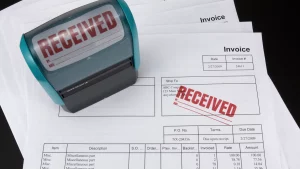
Top Reasons for Automating Your Accounts Payable
Managing accounts payable (AP) efficiently is critical for businesses of all sizes and sectors. Whether settling bills with utility providers or handling payments for products in a retail setup, this task can be complex and time-consuming. However, thanks to data extraction software like Xtracta, the days of manual accounting processing are quickly becoming a thing of the past.
Xtracta’s user-friendly API enables touchless data capture that seamlessly integrates with virtually any accounting or ERP software. This easy-to-use technology allows you to fully optimise your accounts payable workflow, offering multi-faceted benefits for your business. Let’s explore some of these below.
1. Automating Accounts Payable Cuts Costs
The opportunity to save costs is the primary motivator for most businesses automating their accounts payable. The accounts payable process traditionally requires skilled labour, which incurs various costs. These expenses may include the salaries of these employees and the costs associated with their training and ongoing development. Additional overheads may consist of employee benefits, office space, and equipment.
Accounts payable automation can help reduce these costs dramatically by reducing the need for manual labour. Xtracta uses advanced data capture techniques and machine learning algorithms to automatically extract all required information from invoices and other financial documents. This technology can swiftly and accurately process large volumes of documents, speeding up the accounts payable process. Businesses of any size can benefit from this technology. However, the cost-savings of AP automation are particularly notable for larger businesses or those in industries with high volumes of supplier invoices.
2. Automated Accounts Payable Enhances Processing Speed and Efficiency
In a manual setup, processing invoices and payments can be time-consuming, leading to delays and backlogs. These issues are particularly challenging for businesses with seasonal peaks or those experiencing rapid growth. Automated systems process transactions much faster, ensuring timely payments and smooth financial operations.
Consider a seasonal business like an orchard. During peak seasons, the volume of transactions increases significantly, leading to potential delays in manual accounts payable processes. Automation ensures that payments are processed efficiently during these busy periods, maintaining supplier relationships and avoiding bottlenecks in financial workflows.
Timely and accurate payments are key to maintaining positive relationships with suppliers. Payment delays or inaccuracies can lead to strained relations, penalties, or less favourable terms. In industries like hospitality, where short payment terms are often the norm, the repercussions of late payments to suppliers can be particularly significant and varied. Late payments may not only disrupt their operations but can also diminish their trust in your business. Potential consequences may include issuing penalties or denying your business optimal pricing. Suppliers are typically more inclined to give better rates to clients who pay on time. Automating your accounts payable can drastically reduce the time it takes to process and get those payments to the suppliers. It ensures consistency and reliability in payments, enhancing trust and potentially leading to better terms and pricing from suppliers.

3. Automated Accounts Payable Boosts Accuracy
Accuracy is vital when managing your accounts payable. Imagine receiving an invoice from a supplier that doesn’t align with your raised purchase order. This mismatch could occur due to a price increase or a billing error by the supplier. You could pay more than expected if you don’t catch this discrepancy. Such overpayments can be a hassle, requiring efforts to secure a refund or credit, a time-consuming process.
Unlike humans, who are prone to errors like transposing figures, sophisticated automated systems excel in data matching and analysis. They ensure that the amounts on purchase orders match those on invoices. When an invoice reflects a price different from the agreed-upon amount, the system flags it, halting any payments until the discrepancy is resolved. This proactive approach eliminates the inconvenience of dealing with incorrect payments, saving time and effort by avoiding unnecessary complications.
For larger enterprises or companies operating in sectors with high volumes of supplier payments, the sheer scale of transactions can be overwhelming, leading to increased risk of errors. Automation in these contexts enhances accuracy, speeds up processing times, and improves overall financial management.
4. Automation Offers Thorough Data Analysis and Reporting
The ability to analyse and leverage data is paramount in the digital age. Automated systems offer unparalleled speed and thoroughness when processing data. Human invoice transcription is slower and less detailed compared to a machine. An automated system can itemise and categorise expenses, leading to more detailed and insightful financial analysis and reporting. For instance, it can break down an invoice from an office supply company into individual products, each allocated to the correct account code, providing a clearer picture of spending patterns. This detailed data is invaluable for budgeting, forecasting, and strategic decision-making, offering a comprehensive view of the company’s financial health and areas for potential cost savings.
To learn more about accounts payable automation, talk to an Xtracta expert today about using our invoice data extraction service.











 Twitter
Twitter